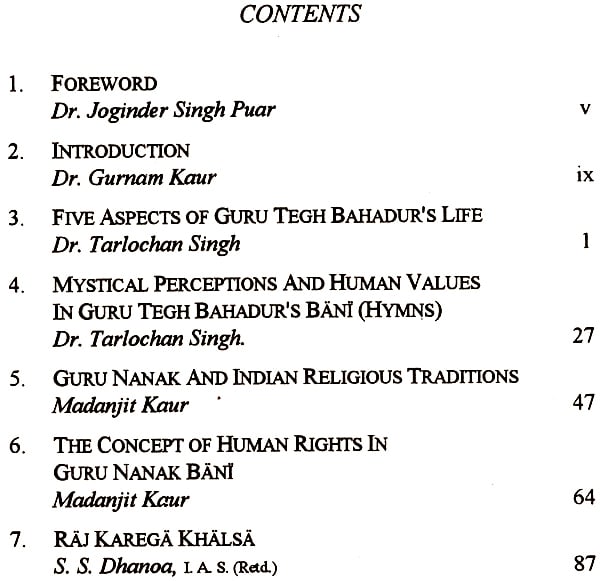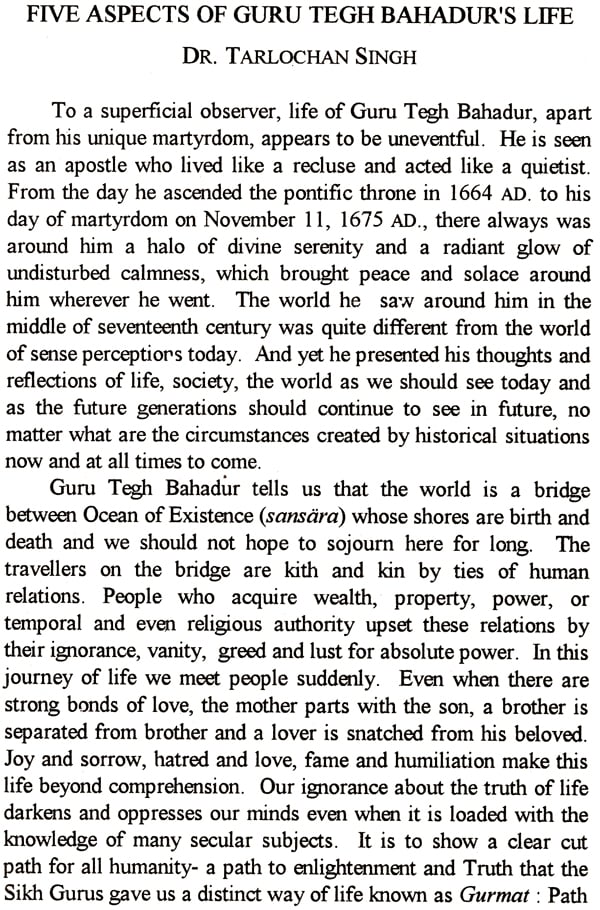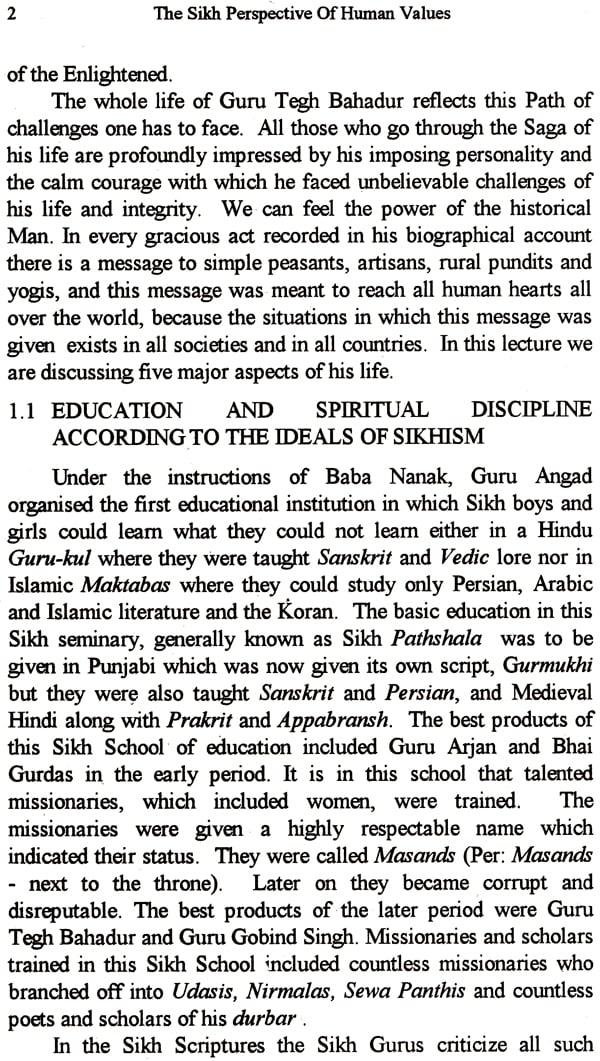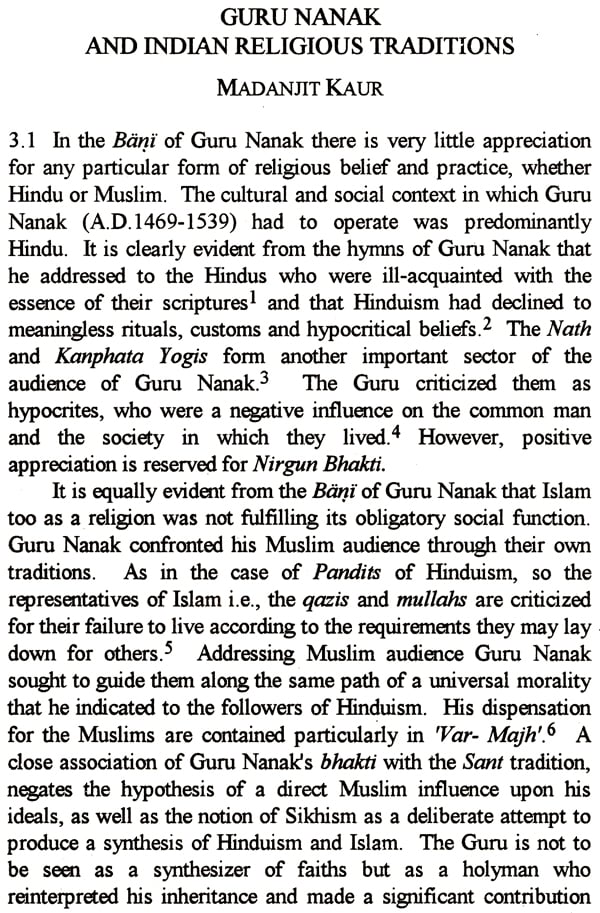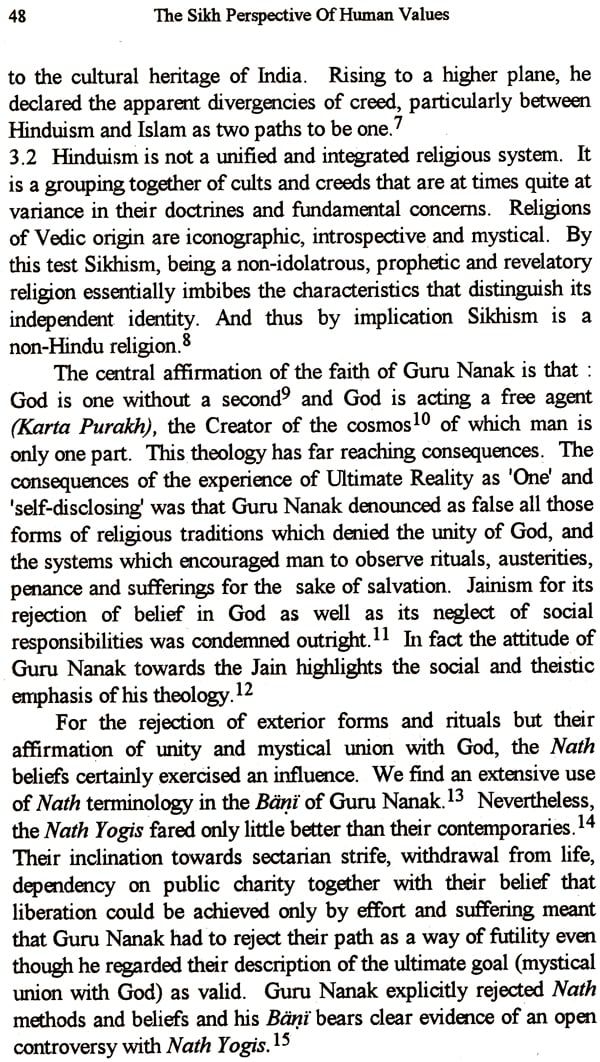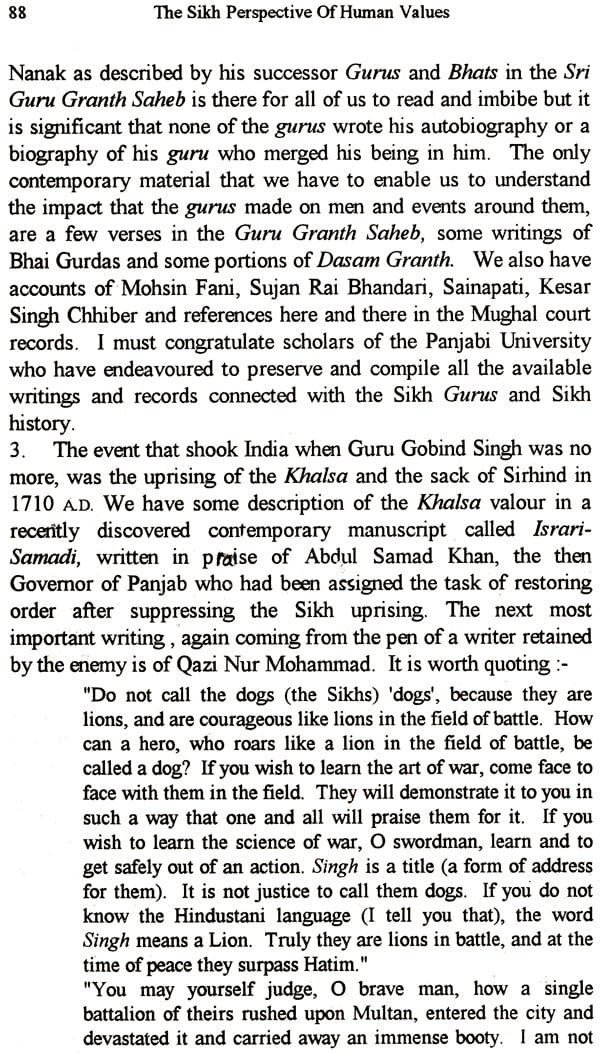
The Sikh Perspective of Human Values (An Old Book)
Book Specification
| Item Code: | NAR723 |
| Author: | Dr. Gurnam Kaur |
| Publisher: | Publication Bureau Punjabi University, Patiala |
| Language: | English |
| Edition: | 1998 |
| ISBN: | 8173804486 |
| Pages: | 140 |
| Cover: | HARDCOVER |
| Other Details | 9.00 X 6.00 inch |
| Weight | 340 gm |
Book Description
Religion is not merely a philosophical insight which defines the nature of Reality, the nature of man and his relation to the Reality, neither it is an ethical system only which seeks to lay down the true values related with human activity. Religion is the basic commitment of man to God. The main concern of religion is to show him the way to reach this Reality. It concerns with the soul of man. Religion seeks to enlighten man about the real meaning of his existence, so that he can realize the Truth and put it into action to his being in particular and resolve the problem of suffering of the whole human race in general. So religion is not merely the response of the rational faculties of man to what he finds of ultimate value in life. It is the response of the whole person, an acceptance and commitment to whatever he takes to be of ultimate value in existence.
We are completely involved, the implications of this fact are that there must be something outside ourselves which makes its claim upon us. Because we often think of ourselves as seeking the meaning of life, this may not be very much clear to us. The seeking for life's meaning has its own peculiar nature. Religion is the way to bring the life to a focus. At the same time this seeking is quite different from the research in other areas of science because it is normative in nature rather than descriptive. When we observe the harmony in nature, the whole cosmos working according to set rules, the delicate balance of so many opposite factors, which make the life of the whole universe then we conclude that there is Supreme, Intelligent, All Knowing Being called God, Who is the Creator of all this universe. According to the Gurus, in Sikhism, such knowledge is realized by comprehending the rational nature of the universe. And realized knowledge is the highest knowledge which is related with the divine order, the hukum.
This movement from God to man through which the whole of man is involved is called revelation. Revelation is basically the communication of, the disclosure of, the Highest Truth, the manifestation of the Divine Will to man. It is the process through which God makes Himself known to us, discloses Himself to us. It is the evidence of the Highest Reality, God, While manifesting the Divine Will to us, disclosing Himself to us, He demands that, we, in turn must do something in response. Thus, here, the problem is not to project our own ideas, our thought to Him. It is simply to recognise and understand His communication, His approach to us. Generally, the revelation is conceived as the communication of Divine Truth in some unusual ways, by the means which are not open to the ordinary channels. Revelation in some form or the other is basic to all religions. Buddhism does not believe in God but still it is a revealed religion because Mahatma Buddha got enlightenment. There is some sort of enlightenment in every religion. Every revelation is independent and is not identical everywhere. It differs in forms, images, commandments, rites and sanctities. Every revelation is considered immutable in its time and the uniqueness and independence of a revelation consists in the personality it creates, the transformation it brings about in the society.
There are so many ways in which revelation can take place. According to the Western conception there are mainly three ways through which revelation takes place in nature, in mystical experience and through historical events. According to the Indian conception, especially the Vedic schools of thought believe that first, the world at large is a revelation of God, the Supreme Reality. Secondly in the form of Shruti i.e. the Veda is promulgated at the beginning of each world cycle of Ishvara. Thirdly Brahman reveals Himself through Avtars and the fourth is Anubhuti i.e. from meditation on the Upanishdic texts one gets the direct experience of Brahman.
1.2 The conception of revelation according to Sikhism is different from the above mentioned, and is unique one. According to the Gurus man can have the direct communion with God through the meditation on His Nam.
**Contents and Sample Pages**
